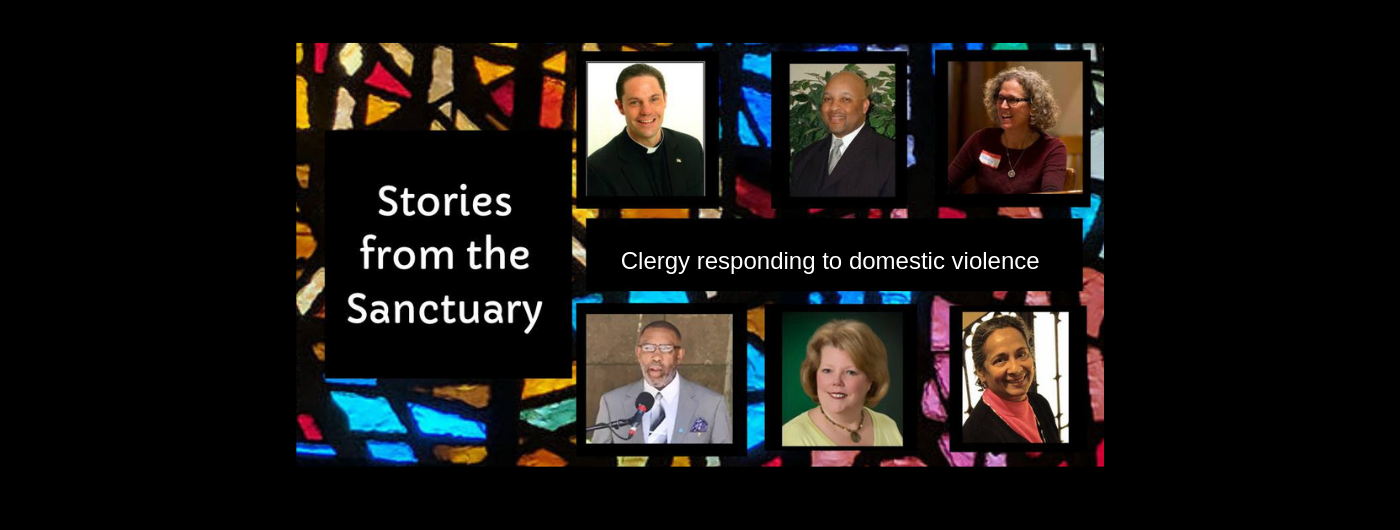Stories from the Sanctuary: Clergy responding to domestic violence
By Angela Reynolds and Kristy Trautmann
The pastor of a small congregation offered to meet with a new attendee of the church. During their meeting, he shared some ways she could become more involved. Unexpectedly, she explained the journey that led her to this congregation: one that started with her surviving an attack from her boyfriend and led her to seek a place to heal and move on in her faith. The pastor admired her strength and courage in sharing her story while wondering if the ministerial training he received adequately laid the foundation for where to go next in this conversation.
Recently Southwest PA Says No More and Christian Associates of Southwest Pennsylvania brought more than 20 faith leaders together to discuss the ways domestic violence arises in ministry. Faith communities are often on the front lines of this work. Survivors are more likely to share deeply personal and traumatic parts of her or his life to local congregational leadership than they are to call a hotline. Sometimes these conversations leave clergy unsure of how to respond. Stories from the Sanctuary made them more aware of the resources available within our region.
Several clergies shared stories of experiences their congregants had faced. Expert panelists provided context and resources. Importantly, clergy learned they are not alone. Stories from the Sanctuary provided a safe place for clergy to respond openly and to be honest about where their training fell short. Participants learned that the church can tap into a network of community experts who are equipped and ready to help.
Several key themes emerged from the discussion:
“Did I say the right thing or respond in the right way?”
- It’s normal to feel anxiety when someone discloses they have been abused.
- Abuse can manifest in different ways. When power and control are threatened, often the violence escalates. The most dangerous time for a victim is when she/he decides to leave the abusive relationship. Enlist the help of experts in making a safety plan.
Try these talking points:
- “I’m glad you told me. I believe you. I’m sorry that happened to you.”
- It’s okay to say: “I’m worried, and I want to help.” (You don’t have to be the expert. You can help connect the person with experts in your community.)
“How soon should I alert authorities when I learn of a bad situation or hear of a potential threat?”
- The RUSafe app includes questions to help victims determine how much danger they are in. If you have the app, you can walk through the questions with a victim. The app also has shortcuts to connect with help.
“How can congregations serve as places of healing for all those affected by sexual abuse or domestic violence?”
- Healing from abuse takes time and it’s a complicated, difficult journey. It’s important to ensure that people get the help they need.
- Disclosure of abuse is an important first step to begin the healing process. Support may be needed for a long time, so be cautious to not convey that things will get immediately better.
- Those who use violence express deep sorrow and regret, but it takes a great deal of work to change patterns of abuse. Offering or expecting forgiveness before someone has invested serious work to change can be harmful.
For help with supporting those affected by sexual or domestic violence in your community, please reach out to the following resources:
- Women’s Center and Shelter of Greater Pittsburgh: 412-687-8005
- Pittsburgh Action Against Rape: 1–866–END RAPE
- You can dial 2-1-1 or text 898-211 for referrals for basic needs support like housing, food, and transportation assistance.
- A full list of resources is available here.
These helplines provide free and confidential listening and support to victims and family members. Helplines are also a way to learn what services are available. Clergy and other professionals can also call hotlines for consultation when counseling a family affected by domestic violence or sexual assault.

